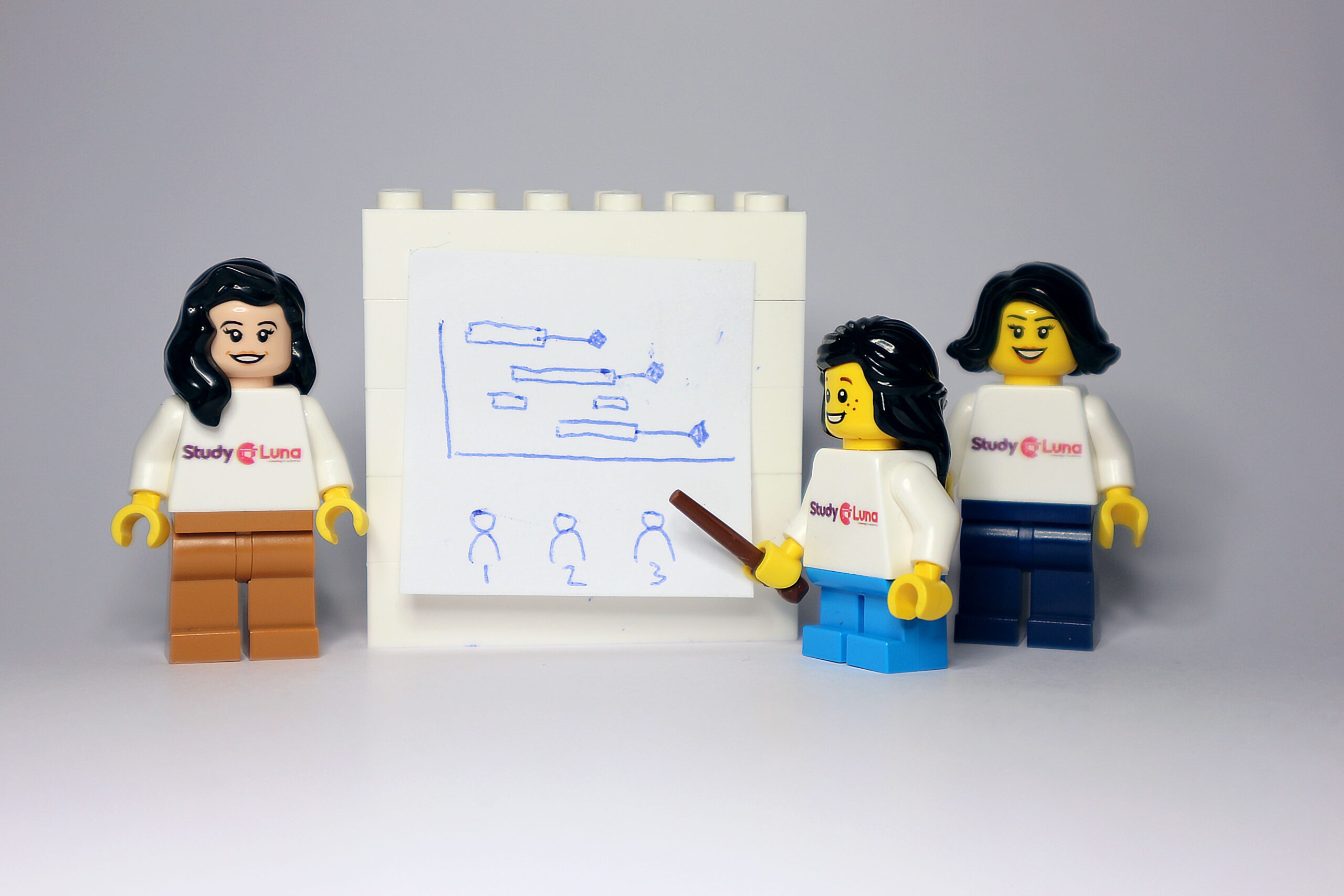Stage 1: Initation
Any project can be divided into four consecutive stages, each with specific actions and requirements that need to be fulfilled. The first stage is Initiation, where you transition from an initial idea to the decision to actually make it happen. This involves developing a vision and mission statement that clearly defines why and how the project should be implemented. During this stage, you’ll also define the goal, objectives, and scope of the project in line with your ambitions and expectations. A rough allocation of resources and assignment of roles to core team members and stakeholders also occur during this phase. The initiation stage concludes when there’s a consensus on the project outline and a clear decision to proceed.
Stage 2: Planning
Once you’ve decided to move forward, the next stage is Planning. Here, the project is broken down into manageable tasks, each associated with specific deliverables and milestones. These tasks are then scheduled into a realistic timeline, often represented as a Gantt chart, after which resources can be allocated. The planning stage wraps up when all aspects of the project have been compiled into a comprehensive project plan.
Stage 3: Execution
The Execution stage is where the real work gets done. This phase tests your prioritization and time management skills as you work to ensure that the project’s goals are met according to schedule, budget, and other predefined requirements. Progress monitoring is essential to ensure that the outcomes align with the expectations set during the initiation and planning stages. Effective people management is also crucial during execution—keeping the team motivated and ensuring key stakeholders are informed.
Stage 4: Closure
Finally, each project concludes with the Closure stage. This is when final reporting and evaluation take place. For larger projects, this might involve formal closure meetings to celebrate successes, while smaller teams might opt for a dinner or drink. Summarizing each project with an overview of lessons learned and a clear description of any next steps is a good practice.
A structured approach van reduce stress
Of course, there’s much more to project management than these four stages. Techniques like risk assessment, stakeholder management, and quality control are essential tools that help streamline your projects. It’s worth familiarizing yourself with these concepts early on, as a structured approach can reduce stress and increase effectiveness.
Even with the best plans, daily life’s constantly changing realities will test even the most seasoned project managers. Balancing structure with flexibility is key, as is knowing when to prioritize one over the other. A good habit is to end your day with a short planning session for the next day, ensuring you start with a clear focus.
It’s a continuous journey
Improving your project management skills is a continuous journey. As you gain experience, the complexity of your projects will naturally increase. StudyLuna offers an e-learning to help you understand basic project management, providing you with the basic skills to tackle this challenging yet rewarding aspect of your academic career. Any bigger project needs a deeper understanding of Project Management and becoming a certified Project Manager is a good option.
